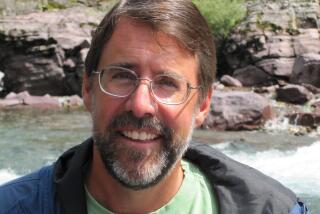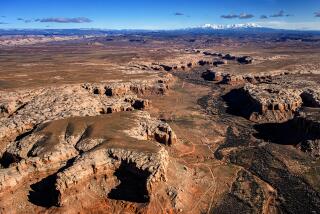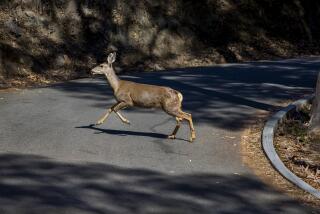TV Review : ‘Wilderness’ Sharpens Debate on Environment
PBS’ “The American Experience” has reflected a keen sense of uncovering the hidden chapters of American history that reveal as much about the national character as a New Deal or a Civil War. The latest, by Lawrence Hott and Diane Garey, titled “Battle for Wilderness” (tonight at 9 on Channel 28) is really about a battle over the American soul.
The environmental movement did not begin on Earth Day 1970, as many suspect, but nearly 100 years ago, with the passionate writings and journeys of John Muir. He was the wild poet of the land, realizing, perhaps before anyone else, the profound yet unsettling truth that much of nature is essentially useless, and not at the service of humanity.
Muir’s word spread across a United States that was running out of frontier and hungry to recover an original sense of “wilderness” (strictly a white man’s term, as a native American reminds us). Just as quickly, Gifford Pinchot, our first professional forester, institutionalized Muir’s conservation ethic. Under President Theodore Roosevelt, Pinchot oversaw the growth of the Forest Service. National Parks were to be off-limits to development; National Forests were to be lands of “multiple use,” Pinchot’s idea that one could manage, conserve and exploit the wilds.
But when San Francisco, after its devastating 1906 quake and fire, demanded a steady water supply via a dam to be built in Yosemite National Park’s Hetch Hetchy Valley, environmentalists Muir and Pinchot drew a line in the sand. The seven-year Hetch Hetchy debate tore the country and the growing ecology movement apart, for Muir’s spirituality and Pinchot’s utility ethic were incompatible. Muir lost, but the debate rages on: Look at the current battles between the Forest Service and the wilderness expansionists, Earth First!.
The final irony--curiously missing from Hott’s and Garey’s otherwise thorough story--is that the Hetch Hetchy dam may soon be destroyed, thus restoring the original valley. Perhaps, in the end, Muir wins after all.
More to Read
The complete guide to home viewing
Get Screen Gab for everything about the TV shows and streaming movies everyone’s talking about.
You may occasionally receive promotional content from the Los Angeles Times.






